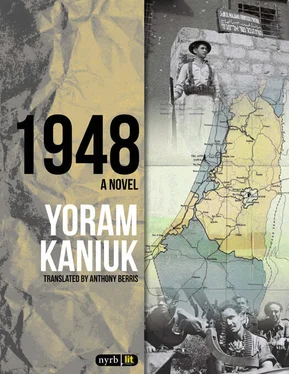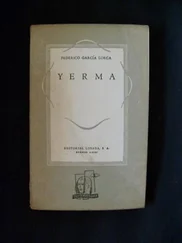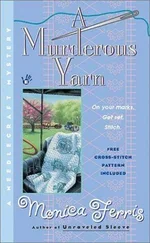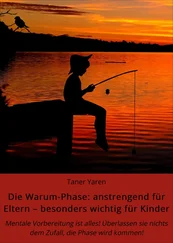My mother hurried in and asked if the man would like coffee or tea or something cold, and he shouted at her, I don’t vant anything from you, Missus Moshe, go to the devil, I don’t vant cold, or hot, or water, I don’t vant anything.
My mother stood mesmerized by what she would later describe as an epiphany and didn’t know how to interpret it and say of what. She was not a spoiled girl from a Swiss boardinghouse, she grew up in poverty, and when she was a little girl she came to Palestine on a reeking boat from Odessa, and later was expelled from Tel Aviv to the fields of Ein Ganim near Petach Tikva, and the Turks, who she always referred to as “May their name be erased,” beat her. She saw a lot of wonders. In her Ein Ganim exile she lay in a field of thistles and looked for goats in the nearby Arab village to bring milk to her sick father. When they returned to Tel Aviv, she would sit by the door as he taught young girls Hebrew, which was forbidden by order of the Turks, and barked like a dog when a Turkish policeman approached, and when the girls heard the barking they began singing as if they were attending a singing lesson, which the Turks permitted. They all died: her father, mother, her two brothers, the jackal, her friends, Bograshov the teacher, Brenner the teacher, Nesher the teacher. And in the 1921 riots she tended the charred bodies of Brenner and his friends. My mother knew wars, in 1929 and 1936, and the world war, but facing that man I saw how her mouth pursed, as if she again was her father’s dog, and she left the room, and there were a few moments of silence.
She went into the kitchen and wept and at the same time heated water for nobody, since my father never drank coffee that she had made, only coffee he made himself in a strange machine he’d brought with him from Germany, and he detested tea because it was too Jewish. The sound of the waves could be heard and they sometimes shouted and sometimes spoke in whispers. And the man said, Moshe, kim aherr , come here and bow to me, bastard of an angel’s son, and I realized that my father had fallen to the floor, which today seems to me an impossibility, but I remember, I remember it well. After two hours the door opened, they both stood there crying, my father, whom I’d never seen cry, and the pale man, whose tears flowed like water from a faucet. They came out of the room, and the man moved closer to me. He didn’t have many teeth, and he shouted, Dust, you, you all are dust, and for no purpose, your father is for no purpose, your mother is for no purpose, you are for no purpose, that kind of Hebrew I do know. How does a nation of Jews become dust? Since when have Jews lived in a country of their own? There will not be a state. Jews are not the Jewish National Fund and not Ben-Gurion. Herzl understood that and so he died outside of Eretz Yisrael, what was he looking for in a country of Jews? He despised Jews like us. And your father, where was he born? He was born in Tarnopol in Galicia, an Austrian only because Emperor Franz Josef’s bastards reached there. And he fought for them and became an officer and wanted to join forces with the German army. And you, who are you? A kind of Arab who doesn’t know what a Jewish language is, and you’ll kiss the tuchess of the Germans here, who this time are dressed up as Arabs, and you’ll bring here all the bones of the Jews to be buried, and you’ll be a cemetery for the dust of dead Jews. You know, mein kind , what kind of a man your grandfather was, and your father doesn’t want me. He’s ashamed of a man like me, but he’s good with Germans. Them he likes. He left us to die in Tarnopol. He dressed up as a German and kissed the tuchess of Germans in Nazi bars in Berlin and played there, and not with me. With me he didn’t play. I’m too Jewish. I, as you say, am of the Diaspora. And then he smiled sweetly and kissed my father on the lips, and my father kissed him back, and all at once he drew away from my father and continued weeping quietly, straightened his cap, and before he left he looked toward my father’s room with all his German books, and said, Your son will die young but he looks the way his handsome grandfather did.
The man skipped quickly down the stairs and my father watched him go. I was mesmerized by that man. He was the fallen statue of a dead king. He was a dead man walking. He was a crumbling ancient palace. My father went back into his room right away and I heard him playing the Monteverdi opera he loved on his gramophone. I thought about the man for many days and my father tried to ignore me. I finally asked him who the man was, and my father asked, Who? What do you mean, “who”? I asked. The man who was here, who spoke Yiddish to you, whom you kissed, and my father suddenly seemed confused, as if a cloud had entered his head. Who? There was nobody here, he said repeatedly, and looked embarrassed and went into what was then called the water closet, from where I heard choked sobbing.
I was a youth back then. A sixteen-year-old half man. I’d never seen scenes like that — the most I’d seen was Oedipus Rex directed by Tyrone Guthrie at the Habima National Theatre, while outside the Lehi* people and the British were firing at each other and something was blown up not far away — and I longed for an innocence that was gradually leaking from me, as it was from everybody. The streets began filling up with wretched creatures that resembled the man who’d visited my father, dressed as beggar princes. The city was filled with broken people.
I started seeking them out, searching for the man I thought was my father’s cousin. They crowded together and spoke in whispers and bought and sold, and one carried a bundle and shouted, Thermometer, thermometer going cheap, and he was told, Who needs a thermometer, and he’d say, Buy it so you won’t need it. I thought, Who is the man who came to our house? I wanted to carry him to the Land of Israel again, to be a hero for his people. I was filled with the awful feeling that I, not he, was human dust. I was to blame because I’d eaten sour cream in the war when I traveled to Gedera, while they died. I remember the teacher Zvi Katan once saying angrily that when his family was murdered in the ghetto, the economy here in Palestine was the best. There was food. There was money. Everybody did business with the British.
Then I came across a man who cleaved to me. He said in the old Hebrew of translations from many years ago, with its gendarme and posta and piaster , that I looked familiar and that I’d been with him in the DP camp near Frankfurt, and I said I hadn’t. He said that he remembered my eyes well and couldn’t forget because I and his son who had died in that damned place were like two peas in a pod, and how dare I not know him, and that his son was dead? How, when I am he? I told him that it’s not me. I’m just a shitty Palestinian native, a sabra, a good family, my father’s a museum director, when the Jews died he was holding chamber concerts and they played all his Germans: Bach. Beethoven. Quartets. Sonatas. And the man came close to me and embraced me and shouted, Don’t forget your father, mein kind , and suddenly he straightened up and started running, and then, I swear to my loyal readers who have come this far, he flew, or that’s how I recall it, and hovered over the Mugrabi Cinema and touched the roof that started to move and open, and the fat German who sold hot dogs in the square below, who in the meantime has been murdered, shouted, Tell me, who is better, Goethe or Shakespeare, and when I said Goethe’s better, he gave me a hot dog and I fled in great shame.
I went to the dunes. I wanted to touch them against the fat German who sold hot dogs in Mugrabi Square with his and my father’s Goethe. I wanted to be me, for the sabras, for the Land of Israel citrons we were, for the sweet and prickly sabras that we were created to be, against the ugly and mistaken Diaspora Jews, and against them I wanted sabras, soda pop, and the howling of jackals, and I thought about someone who’d said back then that we’d begged them to come here to save themselves, there was a pro-Jewish high commissioner, and the Germans wanted them out of Europe because they stank and were a wretched race, and there was an office for Jewish immigration in Vienna, with an expert on Jews called Eichmann, and it was possible but they didn’t want to. And when I first heard about the camps I said, That’s good, they’ll learn for the next time, and then got frightened by what I’d said and I cried.
Читать дальше












